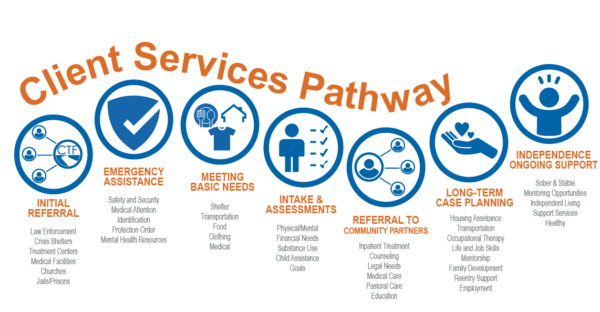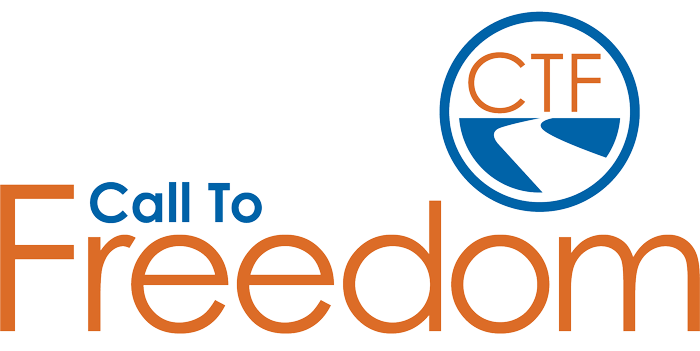Clinical Services Pathway: Meeting Basic Needs
“The Lord is my shepherd; I shall not want.” Psalm 23
The third step in CTF’s Client Services Pathway is Meeting Basic Needs. This can include shelter, transportation, food, clothing, or medical attention. Many victims do not have even their most basic needs met upon coming to CTF. Many survivors have been forced to engage in a practice called “survival sex,” or exchanging sex for basic needs such as food, clothing, or housing. Clients are often from historically marginalized and underserved populations and communities and have limited resources. One survivor shared that she once wore the same set of clothing for six consecutive weeks.

Despite South Dakota’s poverty rate aligning with the national average, three of the five poorest U.S. counties are in South Dakota.[1] Compounded by poverty, the rate of homelessness in SD has risen rapidly, per data from the South Dakota Housing for the Homeless Consortium. Traffickers prey upon these and other risk factors including mental health challenges, addiction, and histories of family violence, exploiting vulnerable populations for labor and/or sex. Traffickers coerce and manipulate victims who are struggling to meet their basic needs, offering material supports such as food, clothing, and shelter, in exchange for labor and/or sex.
According to McKenzie, Director of Marissa’s House & Outreach Services for Call to Freedom, CTF provides survivors with the assistance they need, whether that be “referral for food, dentist, eye appointment, Department of Social Services referral for food stamps, Medicaid, childcare assistance, and even diapers, wipes and baby food” through community partners and generous volunteers and donors.
Housing and shelter is a top need for trafficking survivors. CTF operates Marissa’s House (MH), a 12-unit supportive housing complex tailored to meet the housing needs of survivors and their children, particularly those in the process of reunification. In 2023, a total of 22 women, 25 children, and 13 families were served at MH, and 63% of MH families were involved with Child Protective Services. Of those, 100% were successfully reunited while at MH. CTF also assists with transportation, providing clients with bus passes, rideshare app transportation, and transport via company-owned vehicles as needed. CTF provides gift cards, basic needs like clothing, food, and other items through donations. Clients are also eligible to receive a Freedom Bag from CTF, a backpack or similar bag containing essentials such as a change of clothing and personal hygiene products.
Mary, CTF’s Survivor Service & Program Coordinator, says when clients come in, they are provided with a quiet, safe place to sit and decompress. She gives them some food and something to drink, and finds them clothing as needed, such as a pair of shoes or a shirt. As a lived experience expert, Mary provides critical peer support to CTF clients and has a deep understanding of client experiences. Mary recalls having had all her outfits picked out for her during her exploitation, highlighting one of many ways survivors suffer from occupational injustice. Survivors have been in what she calls “Fight, Flight, Freeze or Fawn” mode for months or years. Through meeting clients’ basic needs, CTF takes the first step in restoring clients’ autonomy and self-determination. Even the simplest choice such as what color of shirt they would like can restore survivors’ sense of agency and dignity, empowering them to make choices and regain control over their lives.
Becky Rasmussen, CTF’s President & CEO, underscores the importance of meeting survivors’ basic needs. “Basic needs equate to safety and stability. If you don’t know where your next meal is coming from or if you’ll have a place to sleep tonight, you cannot begin to think about your future and long-term needs. Ensuring survivors’ immediate needs are met helps them recover from trauma and begin to rebuild their lives without fear of further exploitation.”
If you or someone you know needs Call to Freedom’s services, please call (605) 759-3565.
Written By:
Kelly Hanzlik
References:
[1] Depietro, Andrew. “Richest and Poorest Counties in the U.S.” Intuit Credit Karma, January 31, 2023. https://www.creditkarma.com/insights/i/richest-and-poorest-counties-in-us.

